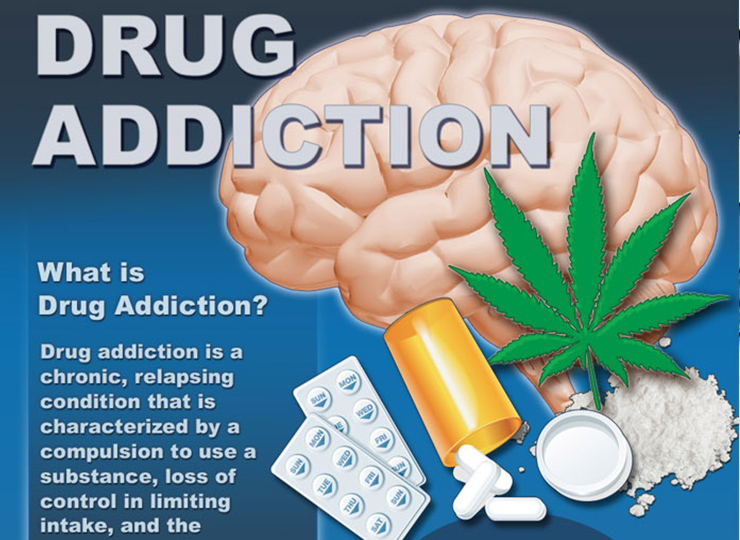
The general effects of Alcohol abuse today are evident on how users of alcohol live their lives. A life full of destruction
The life complications keep getting more and more frustrating because of several factors including alcohol abuse and drug addiction. These two health conditions directly affect the well-being of human life and cannot be over looked. Over the years people have been into the business of marry making while consuming alcohol and all other alcoholic beverages across the globe. It is through this marry making that today life is almost becoming unbearable for most families and especially those taking care on an alcoholic loved one. One may wonder how marry making and self-enjoyment of life while taking a few bottles of drinks could be a problem. If this is what is going on in your mind right now, then you are at the right place, because throughout this article, we are going to be discussing the general effects of alcohol abuse today in our lives. With the help of doctor Dalal Akoury MD and founder of AWAREmed Health and Wellness Resource Center, one of the leading pioneers in natural and holistic addiction treatment we will be well informed of the health effects of alcohol abuse and even drug addiction. You can therefore take this earliest opportunity to schedule for an appointment with her for more guidance and professional help.
Individual’s patients struggling with substance abuse may opt for the appointment with the experts for lasting solution, however the experience doctor Akoury has garnered over the past few decades can be very beneficial to other professional in the same discipline. And if you are wondering on how you can be part of this doctor Akoury is organizing an Educational, Functional and Integrative Addiction conference for medical experts including doctors, counselors, nurses and addiction therapists. The conference will be August 23-25 in Myrtle Beach, South Carolina. This new frontier in Addiction Medicine will be conducted by the most influential group of leading visionaries specializing in the latest advances in natural and integrative addiction medicine, under the theme “The Future of Integrative Addiction”. You can get more information about this on www.integrativeaddiction2015.com or email sharon@integrativeaddiction2015.com. Just to give you a preview of those who will be attending this very important conference, we currently have confirmations from the who is who in the world of medicine including Dr. Mitch Ghen, DO, Ph.D, Sean Devlin, DO, HMD., Sahar Swidan, Pharma D. BCPS., Kenneth Proefrock, N.M.D., William Eidelman, M.D., and Gregory G. Smith, MD. That is just a preview you can get more information from the contacts given above and you are highly welcome to this one in a life time event. Back to the general effects of alcohol abuse today, the body is very much vulnerable to the toxic elements as we will soon find out from the explanations in this discussion.
Several studies have associated severe alcoholism with osteoporosis which is the loss of bone density, muscular deterioration, skin sores, and itching. Whereas women are the most concern with the beauty of their skin complexion as compared to men, alcohol-dependent women seem to face a higher risk than men for damage to muscles, including muscles of the heart, from the toxic effects of alcohol.
Sexual Function and Fertility – Alcoholism increases levels of the female hormone estrogen and reduces levels of the male hormone testosterone, factors that are closely associated with erectile dysfunction and enlarged breasts in men, and infertility in women. Such changes may also be responsible for the higher risks for absent periods and abnormal uterine bleeding in women with alcoholism.
Drinking During Pregnancy and Effects on the Infant – it is important to note that when nursing pregnancy even the so called moderate amounts of alcohol can have damaging effects on the developing fetus, including low birth weight and increased risk for miscarriage. High amounts can cause fetal alcohol syndrome, a condition that can cause mental and growth retardation. Although there is no specific amount of alcohol intake, the risk of developing the syndrome is increased depending on the time of alcohol exposure during pregnancy, a pattern of drinking (four or more drinks per occasion), and how often alcohol consumption occurs.
Moderate alcohol consumption may help protect the hearts of adults with type 2 diabetes. Heavy drinking, however, is associated with obesity, which is a risk factor for this form of diabetes. In addition, alcohol can cause hypoglycemia, a drop in blood sugar, which is especially dangerous for people with diabetes who are taking insulin. Intoxicated diabetics may not be able to recognize symptoms of hypoglycemia.
Drinking too much alcohol can cause immediate mild neurologic problems in anyone, including insomnia and headache. Long-term alcohol use can physically affect the brain. Depending on length and severity of alcohol abuse, neurologic damage may not be permanent, and abstinence nearly always leads to eventual recovery of normal mental function.
People with alcoholism should be sure to take vitamin and mineral supplements. Even apparently well-nourished people with alcoholism may be deficient in important nutrients. Deficiencies in vitamin B pose particular health risks in people with alcoholism. Other vitamin and mineral deficiencies, however, can also cause widespread health problems.
Folate Deficiencies – Alcohol interferes with the metabolism of folate, a very important B vitamin, called folic acid when used as a supplement. Folate deficiencies can cause severe anemia. Deficiencies during pregnancy can lead to birth defects in the infant.
Peripheral Neuropathy – Vitamin B12 deficiencies can also lead to peripheral neuropathy, a condition that causes pain, tingling, and other abnormal sensations in the arms and legs.
The general effects of Alcohol abuse today: Drug Interactions
The effects of many medications are strengthened by alcohol, while others are inhibited. Of particular importance is alcohol’s reinforcing effect on anti-anxiety drugs, sedatives, antidepressants, and antipsychotic medications.
Alcohol also interacts with many drugs used by people with diabetes. It interferes with drugs that prevent seizures or blood clotting. It increases the risk for gastrointestinal bleeding in people taking aspirin or other non-steroidal inflammatory drugs (NSAIDs) including ibuprofen and naproxen. Chronic alcohol abusers have a particularly high risk for adverse side effects from consuming alcohol while taking certain antibiotics. These side effects include flushing, headache, nausea, and vomiting. In other words, taking almost any medication should preclude drinking alcohol. If you were not aware of the effects of alcohol before, now you know and it is time for you to make a difference in your society. If you know of anyone who is struggling with alcoholism, you can be the bridge of recovery to them by arranging with then to schedule for an appointment with doctor Dalal Akoury for help. But for the experts the Integrative Addiction conference for doctors, counselors, nurses and addiction therapists is a must attend for you and you can also consult with doctor Akoury for more information about Integrative Addiction Treatment on the following contact details:
Dalal Akoury M.D
AWAREmed
Tel: 843 213 1480
Email: dollyanis@hotmail.com
www.awaremednetwork.com
http://www.youtube.com/watch?v=ILBEhjYkwKQ










